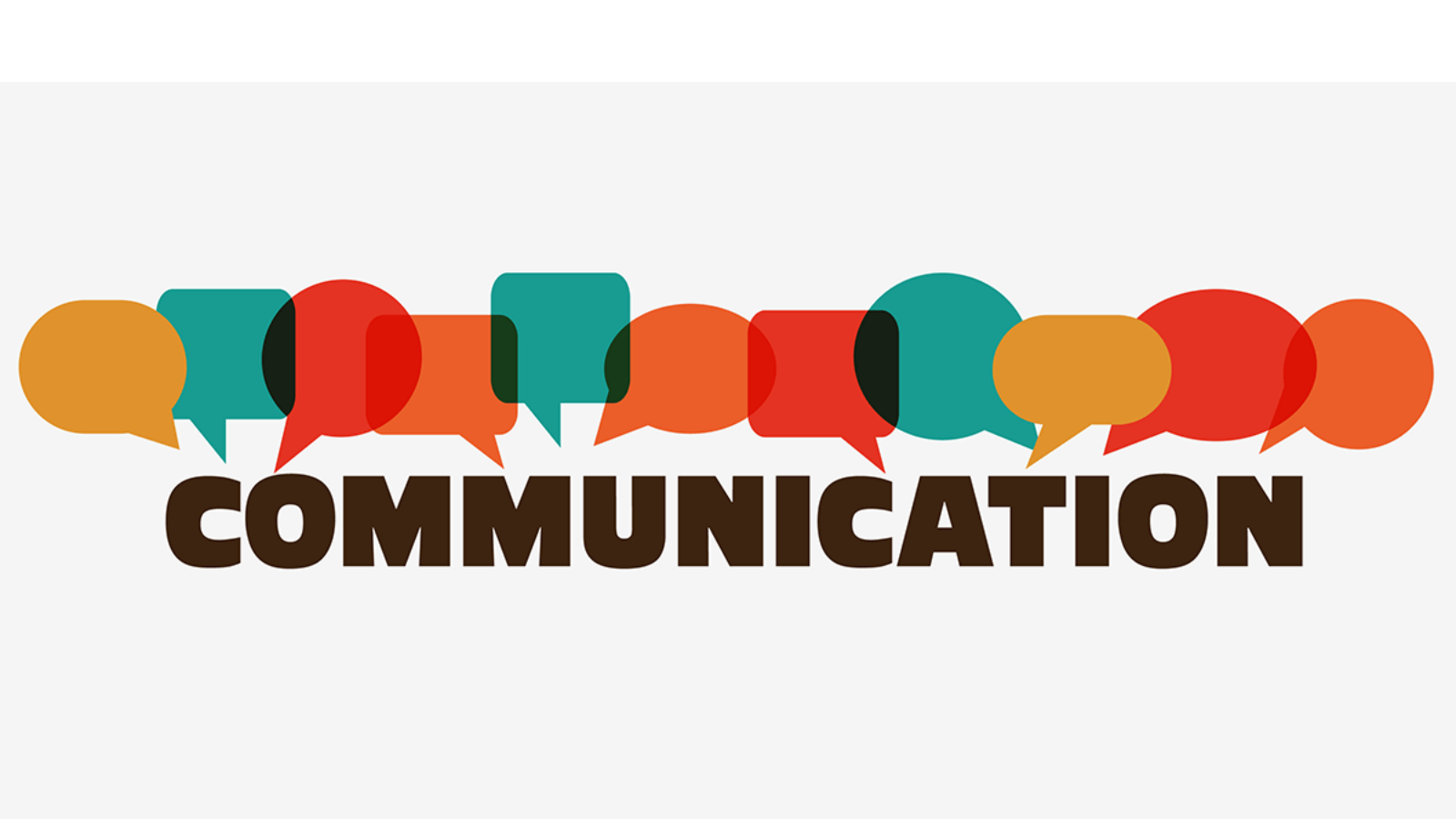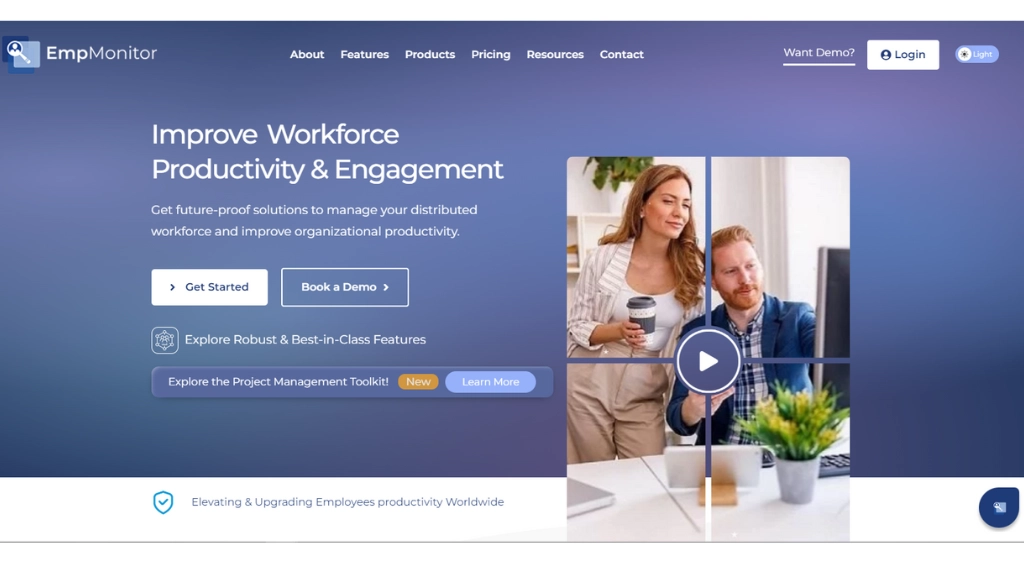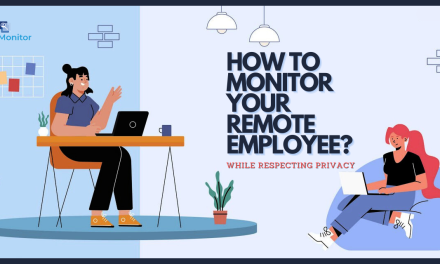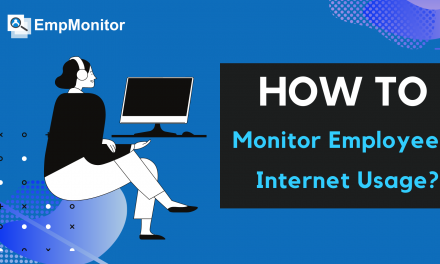Having strong communication skills helps you in every stage of your life. It is especially crucial for your professional career. In this frenetic world, we massively rely on sharing information, resulting in greater emphasis on having effective communication skills. Good interpersonal communication skills and written communication skills are essential to deliver and understand information immediately and precisely.
Communication is a process of understanding and sharing information with someone. To communicate well is to understand and be understood. It can be done in various ways:
- Verbally: your voice
- Visually: images, graphs, maps, infographics
- Non-verbally: body language, eye contact, gestures
- Written: books, websites, emails
Communicating your thoughts effectively is a vital life skill and should not be neglected. In contradiction, inadequate communication skills can have an adverse impact – It may result in misunderstanding, disappointment, and in some cases, failure.
One can say that even a lifetime is not enough for mastering communication skills. However, there are many things that you can do to improve your communication skills and ensure that you can transmit and receive information effectively.
In this article, We will discuss the importance of communication skills. And how to improve communication skills at work.
Let’s get started!
Hit The Play Button To Listen Podcast:
Importance Of Communication Skills:
Having good communication skills helps you throughout your life. It affects your work life, social gatherings, and personal life. Especially in your professional career, you need to communicate effectively with your colleagues.
Good communication skill is going to be the key to delivering your point precisely. Communication skills help you to tailor your thoughts and present them accurately. Having effective interpersonal communication skills can do wonders for every aspect of your life.
#1. Communication Skills Enhances Your Value In The Workplace:
You may have already experienced it in your life that people tend to give more value to people who can express their thoughts properly. It is the same for your professional life as well.
Whether you are looking for a job or already have one and looking for a promotion, you need to communicate effectively. Your chances of getting a job or getting a promotion depend on how good you are at communicating with your boss, or anyone in front of you.
Communication skills are essential for presenting your ideas appropriately, write concisely, and working as a team. Having the capacity to listen attentively, speak coherently, and making a comfortable environment is valuable in any organization and can require a wide range of skills:
- Listening to others and exhibiting interest in the conversation.
- Dealing with phone or online conversations properly.
- Encouraging interaction in your team.
- Expressing an opinion or asking a question.
- Having the ability to convince others.
#2. Highly In Demand By Businesses:
According to many surveys every year, verbal and written communication proficiencies are consistently ranked in the top ten desirable skills by the employer. Employees are often encouraged to take online courses and in-person training to improve their presentation and communication skills.
Skills potential employers seek:
- Communication (written and verbal)
- Organization
- Teamwork
- Critical thinking
- Analytical skills
#3. Helps You Boost Your Career Growth:
In the workplace, you have many tasks that require you to communicate with your teammates. You might need to request information, address problems, provide directions, work in teams, engage with clients, etc. If you want better synchronization and effective teamwork, good communication skills are essential.
Also, as the workplace is becoming more global, there are many factors to consider for communicating well in such a diverse environment. Having the ability to convey messages clearly and understand other people means work can be completed more effectively. It adds extra benefits to the company as a whole.
Employers seek employees who can think for themselves. The employees who can initiate, solve problems, and are interested in the success of the company. If you want to prove your worth as a valued member of the organization, it is crucial to communicate your thoughts, and ideas properly.
#4. Enables You To Speak Concisely:
It is a natural human behavior to get nervous in front of superiors or clients. Communication skills training helps you to adapt and deal with all the different scenarios in your life. And it also allows you to get the most out of any situation.
#5. Builds Better Rapport With Customers:
Customers expect nothing more but to be understood by a company. They want companies to listen to their problems and pay attention to their feedback.
Engaging with customers and listening to their queries is an essential part of your business. It can be face-to-face, online, or any other possible medium of communication.
#7. Helps You To Learn Better:
Communication skills have played a significant role in your existing knowledge and beliefs. You learn to speak in public by first having conversations, then by answering questions, and then by expressing your opinions. It is a process that you acquire with experience.
You learn to write by first learning to read, then by writing and learning to think critically. Good interpersonal communication skills help you grasp information and communicate your ideas concisely and in a meaningful way to other people.
#8. Improves Your Professional Image:
Having good communication skills makes an impressive first impression. It also reflects on the people you interact with and influences their thoughts about you.
Throughout your career, you will be representing your business or company to customers or clients. Your professionalism and attention to detail will reflect positively on you and set you up for success.
#9. Other Perks Of Having Effective Communication Skills:
In today’s competitive business world, good communication skills are essential at all levels. And many successful organizations comprehend how crucial it is to have effective communication with teams and departments. There are various other benefits:
- More perceptive decision-making and problem-solving skills.
- Productivity improvement.
- Persuasive and compelling corporate elements.
- Clearer, more streamlined workflow.
- Sound business relationships.
- Successful response ensured.
Having a healthy and transparent workplace where everyone can express their problems and opinions is critical for the growth of the company, and well being of employees as well.
As an employer, you must make the workplace better for employees and provide proper guidance to improve their communication skills. Communication skills are not the only factor for the growth of the company and its employees.
Punctuality, productivity, efficiency, task management capabilities, good work ethics, and many other factors are involved in the path to success. Keeping a tab on all these factors and improving them is as important as improving communication skills.
If you want to know more about the employees, their daily activities during working hours, you can use EmpMonitor. With the help of EmpMonitor, you can monitor their daily activities like clock-in/clock-out, break times, active hours, office hours, productivity hours, etc.
EmpMonitor provides many astonishing and valuable features that can really change and improve the work environment and improve overall productivity at your workplace. Get your free trial now!
How To Improve Communication Skills At Work?
Having the ability to communicate effectively is a fundamental skill. It helps you create strong connections with others, solve conflict, show empathy, and even convince others.
You communicate verbally, non-verbally, and in writing consistently at work to help meet the requirements of your work. Follow the steps below to help you focus your efforts and improve your skills in the workplace.
#1. Listen To Understand:
If you are having a conversation with someone or during a presentation, be sure to give your undivided attention to the people talking. Avoid any distractions, silence phones, and turn off any social media notifications. Concentrate on being in the moment and use your body language to indicate your curiosity about what someone else has to say.
You should turn your body towards the individual speaking, sit up or stand straight, and maintain eye contact as they speak to show attentiveness. Listening to others represents your respect for the people around you and your workplace.
#2. Be Aware Of The Audience:
Communication is a two-way process of sharing information. Even when you are not talking, how you conduct yourself sends prompts to the person in front of you. Try to understand your audience when communicating to help get your information across. In the workplace, your communication is formal and you need to maintain professionalism. It should incorporate language that is respectful and constructive to communicate.
#3. Adapt To The Atmosphere:
It is essential to consider your surroundings while practicing good communication skills. The information you are trying to share should be appropriate for the environment. Using academic and industry-specific language in the lunchroom won’t be necessary. But in a presentation or meeting, being professional and technical is a must.
#4. Express Empathy:
If other people feel that you understand them, they will be interested in communicating with you. Having the ability to understand other’s feelings and show empathy is what makes you a good human being. It is also a sign of higher emotional intelligence. You can validate or re-emphasize their point or just smile at them.
#5. Exhibit A Welcoming Demeanor:
People will be more likely to communicate with you if you have a welcoming and approachable attitude. Making eye contact, smiling, handshakes, or just giving a friendly nod will make you approachable and kind. Honesty and kindness will help you build relations with your colleagues and also a positive work environment.
#6. Convey Confidence:
People tend to pay attention and respond positively when you communicate confidently. Although communicating confidence and assertiveness is a skill that requires thorough practice. People are more responsive when you communicate with purpose and in a way that emphasizes your belief in yourself. Knowing your strengths, being positive in the workplace, accepting compliments, taking constructive criticism, and even knowing how to motivate others are all examples of ways you can radiate confidence at work.
#7. Improve Your Writing Skills:
Although written communication skills are often ignored, how you present your ideas in the written form can indicate a lot about you. Others sometimes misinterpret your written inflection or message while reading. Conscientiously re-reading an email or editing a memo can help you maintain professionalism at work and prevent miscommunication. Keep it professional, use direct language, and privately read aloud any written communications to ensure your message is concise and positive.
#8. Pay Attention To Your Body Language:
Your body language says a lot about you while communicating with others. It is essential to be aware of how you stand, where you place arms, and make eye contact to show welcoming and friendly behavior.
Your professional synergies, conduct at meetings, and even how you move around can be the key indicators about the type of employee and coworker you are. Focus on these non-verbal signs to be sure you are conveying an appropriate message for the workplace.
#9. Pay Attention To Your Tone:
It is crucial to pay attention to your tone while talking to someone.
Maintaining a professional tone for workplace interactions shows you respect those around you and can help you gain the trust of your peers.
#10. Collect Your Thoughts Before Saying:
It is very important to be careful about what to say and when to say it. Before saying anything, consider what you say is conducive to completing a task or supporting someone else. Collecting your thoughts before talking can help you avoid an embarrassing situation and can be an effective way to maintain positive workplace relationships.
#11. Be Impartial:
Treat everyone kindly and equally. Consistency is the key to communicating with others. It helps you develop positive work relationships. Your behavior with your colleagues should be impartial and positive. Consider how responsive you are when someone approaches you, then reflect upon ways to support them through encouragement and understanding.
#12. Look For Signs From Others:
Learning to understand the non-verbal indications others give while interacting can help you respond positively and quickly. Communication is a key interpersonal skill that can help you support those around you and reveal your leadership qualities. Their body language either with purpose or subconsciously can tell you many things about their mood, emotions, or perspective.
#13. Seek Feedback:
Feedback helps you at great lengths to improve your communication skills. You can either ask a friend or colleague about your interpersonal communication skills. Listen to every suggestion they offer, it might be hard. But it can help you see the traits that you are not aware of.
#14. Keep Looking For Opportunities:
Practicing your skills is one of the best ways to improve them. Keep looking for any opportunities at work to socialize with others and observe interactions. If there is an opportunity to lead a discussion or present on a topic, consider taking advantage of it. All this will help you hone your skills and demonstrate desirable leadership qualities to a manager. Think about the ways to practice your skills away from work.
#15. Seek Guidance From Experts.
You can also find a mentor and ask for advice to improve and practice your communication skills. There are conferences and seminars that you can register for and attend to help you work on your skills. And there are tons of books available that you can utilize.
Check Our Related Posts:
Even-handled Timesheets: Quick, Easy & Accurate Time Tracking Software
07 Effects of Employee Recognition on Workforce Management
How To Prevent Your Company From Data Theft?
Wrapping Words:
The ability to effectively communicate with your clients, colleagues, and managers is essential. It does not matter which sector you are in, good communication skills can help you build teams, inspire high performance, and enhance the workplace culture.
Just remember, communication is a two-way process, so pay attention to others’ verbal and nonverbal signals as well as your own. Knowing the importance and trying to improve your communication skills is just a start to your journey.
You can only harness it with proper practice and experience. Just keep calm and keep improving your communication skills. It will do wonders for your career growth and life.


















